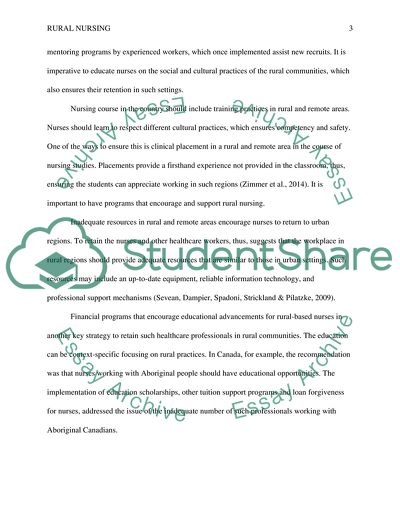Rural nursing Essay Example | Topics and Well Written Essays - 500 words. https://studentshare.org/nursing/1880176-nursing-education-for-rural-and-northern-practice-in-canada
Rural Nursing Essay Example | Topics and Well Written Essays - 500 Words. https://studentshare.org/nursing/1880176-nursing-education-for-rural-and-northern-practice-in-canada.


